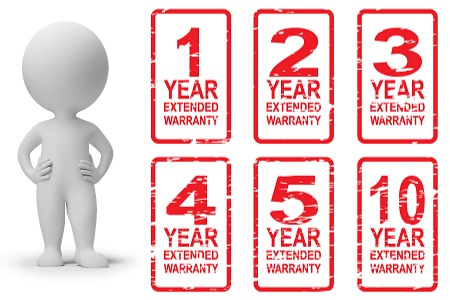Should I buy the extended warranty for my car?
- Details
- Written by Q&A Team
- Category: Car Shopping
- Published: April 13 2014

You are in sitting in the finance office of the car dealer, and the finance manager asks if you would like to purchase an extended warranty for your car. What should you say?
Manufacturer car warranty explanation
Before you agree to an extended warranty, you need to understand the manufacturer warranty first. Car manufacturers will typically offer a warranty on the new cars they make, which means they will pay for needed repairs on the vehicle if certain mechanical problems arise within a specified time frame, or when a specified number of miles appear on the odometer. Once the manufacturer warranty expires, the owner of the car is financially responsible for any repairs on the car.
Power Train Warranty - This type of warranty covers the really big ticket items on the car, that are responsible for making the car move down the road (i.e. engine, transmission).
Bumper-to-Bumper Warranty - This type of warranty covers any type or repair that would be needed on the car.
Extended Vehicle Warranty / Protection
Extended vehicle warranty/protection will pay for repairs that occur when the manufacturer warranty expires. When you purchase extended vehicle protection, you won't have to worry about repair expenses if they arise in the future. Your cost to purchase the protection will depend on the age and mileage of the car.
Are you buying a new car?
Any car manufacturer that wants to stay in business should offer a car with a power train warranty for several years, and a bumper-to-bumper warranty of at least 2-3 years. You can probably take a pass on the extended warranty for now. The car dealer will likely send you a notification when the manufacturer warranty is about to expire. At this time you can decide if you want to buy the extended warranty.
Are you buying a used car with low miles?
If you are buying a car that doesn't have much miles on it, you can probably say 'no' to the extended warranty for now. The car is not likely to need major repairs for awhile, and any minor repairs that arise could very well be less than the cost to purchase an extended warranty.
Are you buying a used car with high miles?
If you are buying a car with higher mileage (i.e. over 50,000 miles), you might consider saying 'yes' to the extended warranty. The likelihood of repairs increase as the car gets more miles, so you can expect an occasional trip to the mechanic for repairs.
Choosing how you pay for car repair
Sooner or later every car will need some type of repair. If you don't purchase an extended warranty, future repairs may cost you more than the cost of the warranty. However, if you purchase an extended warranty and sell the car before problems arise (or the extended warranty expires), then you have paid for repairs you didn't need.
Mechanical devices can fail at any time - it is a fact of life. Ultimately you have to decide if you are willing to pay extra for peace of mind now, or if you are want to save money now and take the chance that repairs won't be too costly down the road.



